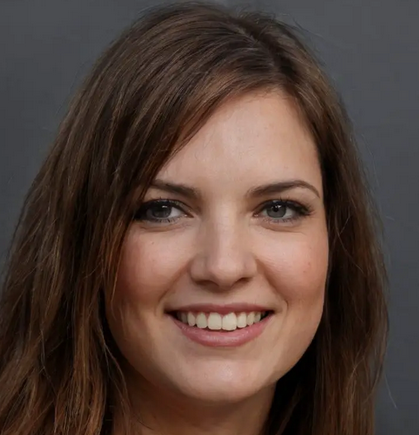Politics
Poland in orbit: five EU-funded space research projects in the spotlight
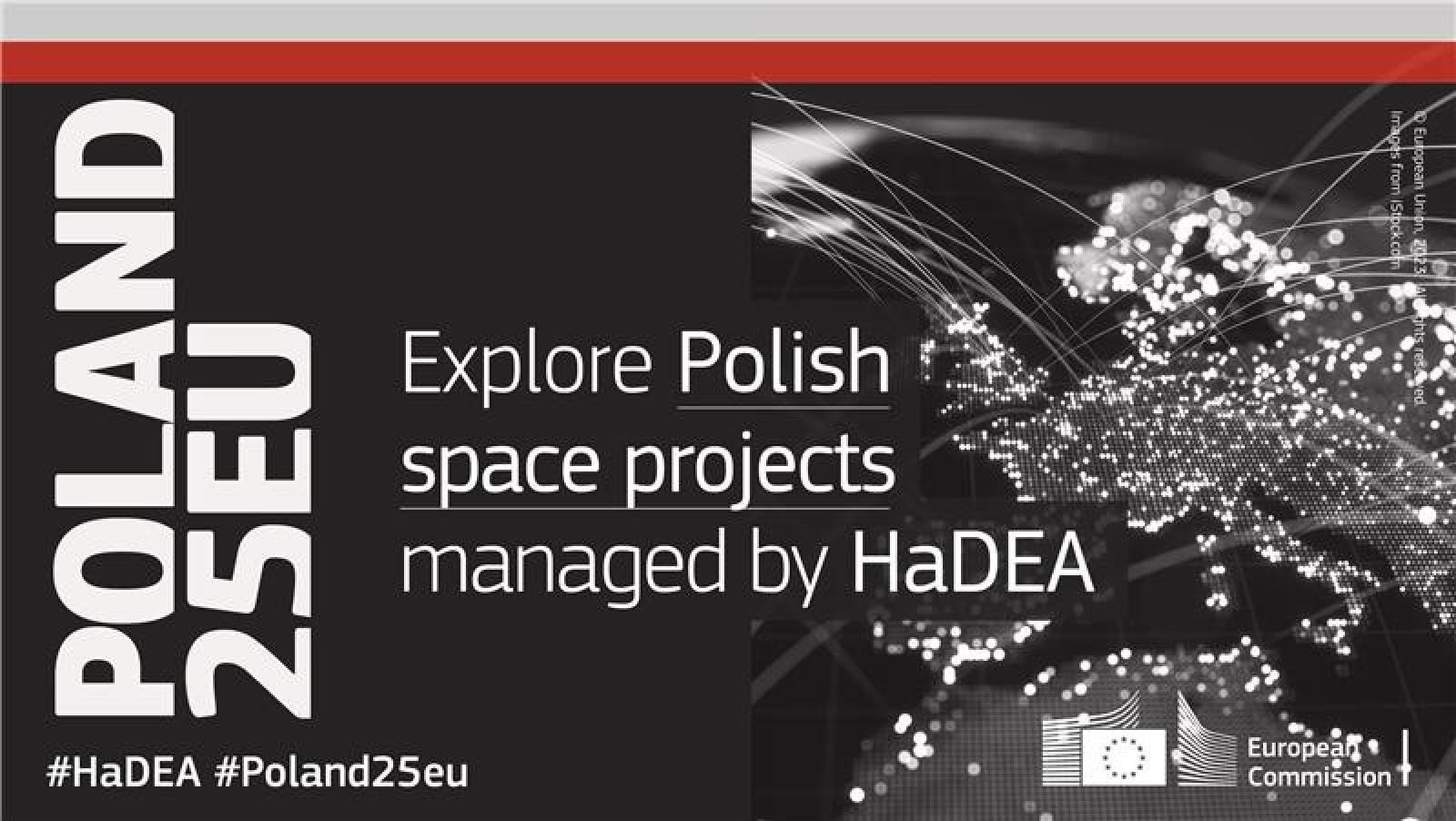
During the first half of 2025, Poland is holding the rotating presidency of the Council of the European Union for the second time. As president, Poland is steering work across all levels of the Council’s operations, aiming to foster collaboration and consensus among EU Member States.
With the official motto “Security, Europe!”, the Polish presidency focuses on strengthening European security in seven security dimensions. In the area of space the presidency will focus on a number of topics, including the use of Earth observation (EO) data and AI for security and crisis management. It will also promote synergies of space technologies with other industries, including defence. Under the auspices of the Polish Presidency, the EU Space Days 2025 will be organised in Gdańsk (27-28 May).
Horizon Europe, the EU framework programme for research & innovation, is funding EU Space Research projects across various domains. These projects aim to develop cutting-edge space technologies, products and services, ensuring that the EU remains competitive in space and retains a high level of autonomy in accessing and utilising space.
With Poland’s EU presidency now in full swing, we highlight five EU-funded research projects with significant contributions from Polish participants:
EROSS SC – Revolutionising In-Space Operations and Services
PL beneficiary: PIAP Space
EROSS SC is enabling the maturation of robotic technologies needed for on-orbit servicing, a key element of In-Space Operations and Services. The ambitious project is integrating the different technologies into a single mission concept, covering various operations on orbiting satellites, including rendezvous, capturing and servicing.
LUWEX – Extracting water from Moon dust
PL beneficiaries: Scanway and Wrocław University of Science and Technology
LUWEX aimed to develop novel technologies for extracting and purifying water from lunar regolith. The international team of researchers successfully demonstrated the extraction technologies in laboratory conditions, showing how ice could be extracted from simulated lunar regolith. The purified water holds significant potential for use as drinking water, oxygen production, or rocket propellant in space – a critical step in supporting sustainable space exploration missions. The project ended on 31 December 2024; this video showcases its achievements.
ORCHIDE – Boosting on-board Earth observation applications
PL beneficiary: KP Labs
ORCHIDE focuses on optimising on-board data processing for Earth observation missions, addressing the challenge of handling large volumes of data generated by multiple instruments. The ability to process data on board allows for a more efficient use of available resources, thereby enhancing mission flexibility and reducing operational costs. The project seeks to facilitate the deployment and orchestration of image processing applications on board EO satellites, regardless of the hardware processing resources and the hosting software execution platform.
SALTO – Towards a European reusable launcher
PL beneficiary: SpaceForest
SALTO aims to raise the maturity level of the first European reusable rocket technology and significantly reduce launch costs, while ensuring improvements in the environmental footprint and strengthening Europe’s competitiveness in strategic space missions. Complementary to and in coordination with the ESA European THEMIS demonstrator programme, SALTO will perform in the course of 2025, for the first time in Europe, fly/recover/re-fly cycles of a reusable rocket first-stage demonstrator.
THEIA – Enhancing the Copernicus Security Service
PL beneficiary: Creotech Instruments
THEIA addresses the critical crisis management challenges posed by forced population displacements, which are caused by conflicts, climate change, extreme weather events and food shortage. The project is proposing the integration of Geospatial Artificial Intelligence (GeoAI) and Machine Learning with advanced data fusion and analysis techniques, combining space (Earth observation) and non-space data. The innovative crisis information tools created by the project will be tailored to user and policy needs, and will benefit a wide array of end-users including the Copernicus Security Services.
Background
EU Space Research aims to foster a cost-effective, competitive, and innovative space industry and research community. Under Horizon Europe Cluster 4 – Space (Destination 5), HaDEA is funding projects that prepare future evolutions of the EU Space Programme components, foster the EU space sector’s competitiveness, reinforce its independent capacity to access space, and secure its autonomy of supply for critical technologies.
Source link
Politics
Colombia: Joint Press Release on negotiations on a Partnership and Cooperation Agreement
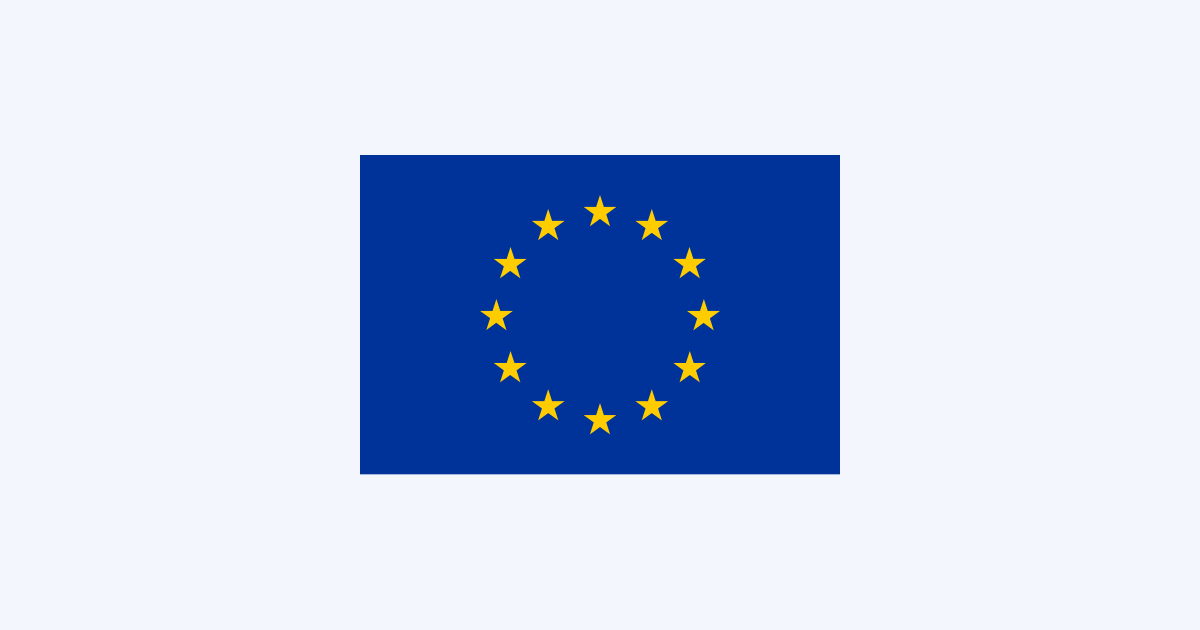
DISCLAIMER OPINIONS: The opinions of the authors or reproduced in the articles are the ones of those stating them and it is their own responsibility. Should you find any incorrections you can always contact the newsdesk to seek a correction or right of replay.
DISCLAIMER TRANSLATIONS: All articles in this site are published in English. The translated versions are done through an automated process known as neural translations. If in doubt, always refer to the original article. Thank you for understanding.
DISCLAIMER PHOTOS: We mostly used photos images that are readily available online, from free sources, or from the people promoting the news. If by any chance it happens that we have used one of your copyrighted photos, please do not hesitate to contact us and we will take it down without question. We do not make profits as this is a not for profit project to give voice to the voiceless while giving them a platform to be informed also of general news, and it is completely free.
Politics
Trade: Coreper endorses the Council’s negotiating position on FDI screening revision
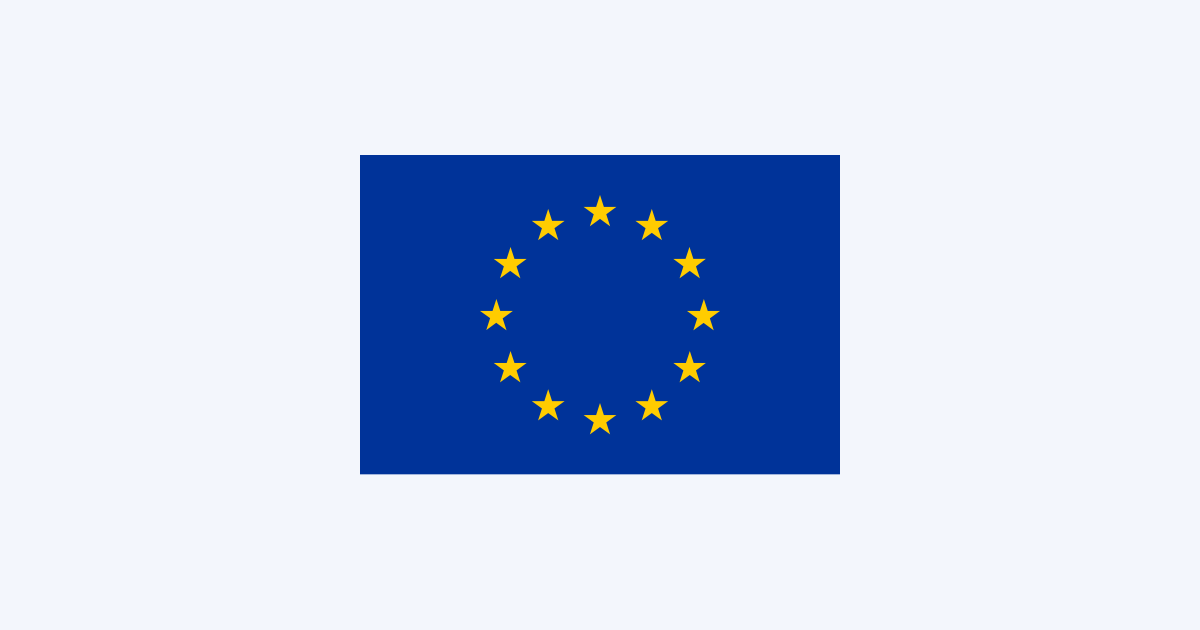
DISCLAIMER OPINIONS: The opinions of the authors or reproduced in the articles are the ones of those stating them and it is their own responsibility. Should you find any incorrections you can always contact the newsdesk to seek a correction or right of replay.
DISCLAIMER TRANSLATIONS: All articles in this site are published in English. The translated versions are done through an automated process known as neural translations. If in doubt, always refer to the original article. Thank you for understanding.
DISCLAIMER PHOTOS: We mostly used photos images that are readily available online, from free sources, or from the people promoting the news. If by any chance it happens that we have used one of your copyrighted photos, please do not hesitate to contact us and we will take it down without question. We do not make profits as this is a not for profit project to give voice to the voiceless while giving them a platform to be informed also of general news, and it is completely free.
Politics
Steal, Deal, Repeat: Cybercriminals cash in on your data
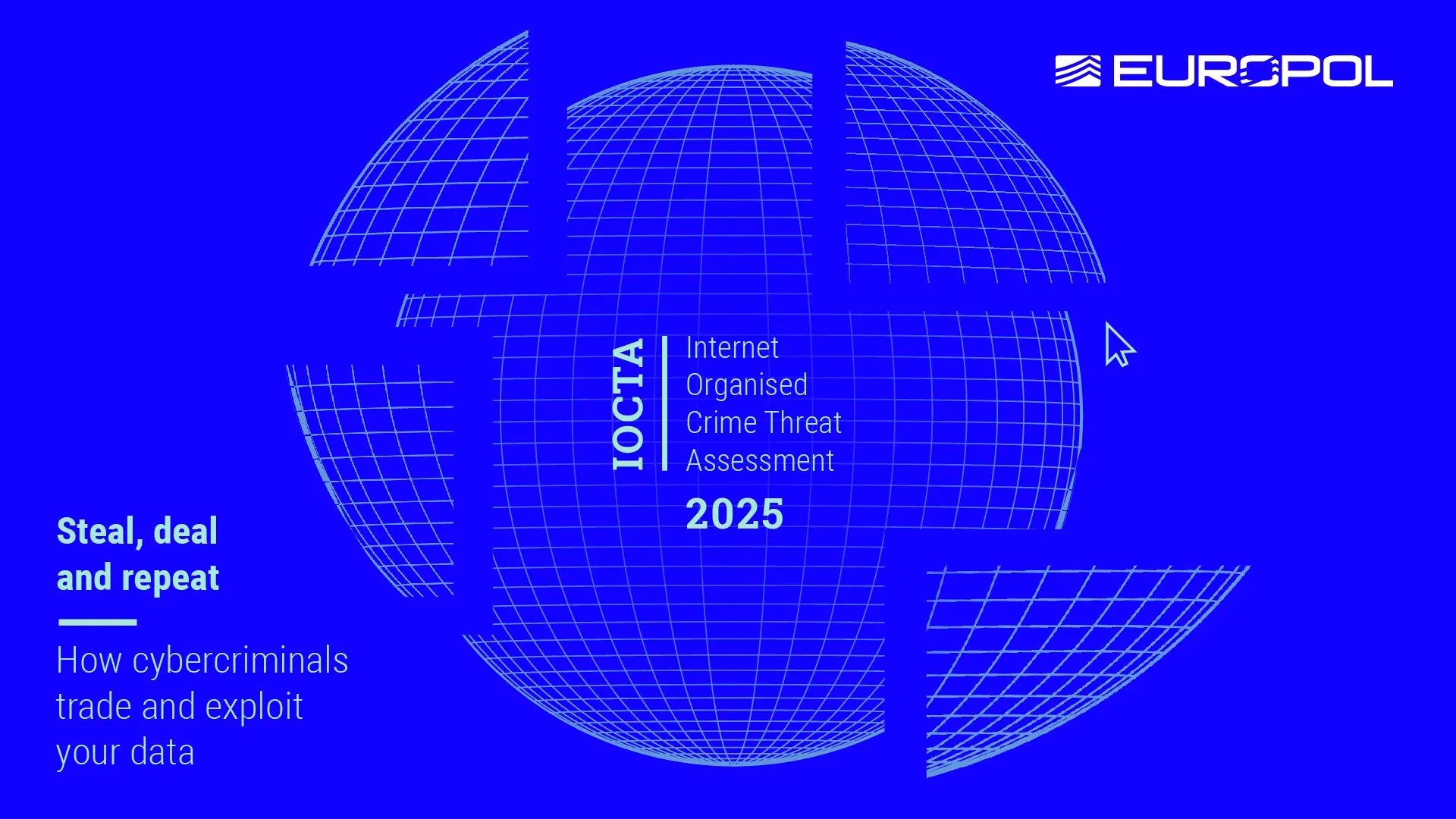
In its newly released 2025 Internet Organised Crime Threat Assessment (IOCTA) , Europol has issued a chilling warning: the digital underworld is no longer just about hacking into systems—it’s about profiting from stolen data. This underground economy, fueled by compromised identities, credentials, and sensitive information, powers everything from ransomware attacks to child exploitation, forming a sprawling criminal ecosystem that transcends borders and technologies.
The report, published today, underscores how cybercriminals have shifted their focus from isolated breaches to building a robust marketplace where stolen data is not merely an end goal—but a currency.
A Hidden Economy Built on Access
At the heart of this criminal enterprise lies access—access to corporate networks, personal devices, and individual identities. The IOCTA 2025 paints a stark picture of a world where nearly every aspect of our digital lives is under siege. From phishing campaigns to AI-generated deepfakes, cybercriminals are deploying increasingly sophisticated tools to infiltrate systems and harvest valuable data.
According to Edvardas Šileris, Head of Europol’s European Cybercrime Centre (EC3), “You can’t defend what you don’t understand.” He added that the latest assessment provides critical insights into the hidden mechanisms of cybercrime, equipping law enforcement, policymakers, and private sector stakeholders with the intelligence they need to respond effectively.
Generative AI Supercharges Social Engineering
One of the most alarming trends outlined in the report is the use of generative artificial intelligence , including large language models (LLMs), to enhance social engineering attacks. Criminals are now capable of crafting highly personalized scam messages tailored to victims’ cultural contexts, languages, and even personal habits. These AI-driven tactics allow fraudsters to mimic trusted entities—from bank representatives to government officials—with unnerving accuracy.
This evolution is particularly devastating in the realm of child sexual exploitation , where offenders are leveraging AI to automate grooming processes and increase the emotional manipulation of young victims. The report warns that these tools enable predators to scale their operations, making detection and prevention more challenging than ever before.
Data as Commodity: Crime-as-a-Service Thrives
Cybercrime has become accessible to virtually anyone willing to pay. The rise of Crime-as-a-Service (CaaS) platforms means that even those without technical expertise can purchase stolen data, rent out botnets, or follow step-by-step guides to execute complex fraud schemes. Marketplaces operating on dark web forums, encrypted messaging apps, and subscription-based services offer bulk sales of login credentials, compromised corporate systems, and even remote access to hacked infrastructure.
“Data is no longer just the target—it’s a commodity,” the report states. Every breach, leak, or phishing success feeds into a cycle where data is harvested, repackaged, and resold across layers of the criminal supply chain.
Extortion, Identity Theft, and Exploitation
Beyond financial fraud, stolen data is being weaponized for extortion, identity theft, and abuse , often targeting the most vulnerable members of society. Ransomware groups continue to exploit known software vulnerabilities and manipulate human behavior through psychological pressure and fear-based tactics. One emerging technique involves mimicking common error messages and CAPTCHA boxes—a tactic dubbed “ClickFix”—to trick users into installing malware themselves.
Meanwhile, the growing reliance on end-to-end encryption (E2EE) poses a significant challenge for law enforcement. While essential for protecting user privacy, E2EE apps like WhatsApp, Signal, and Telegram are increasingly abused by criminals to coordinate illegal activity, exchange stolen data, and evade surveillance. Europol notes that encrypted communications are now a primary channel for organizing cybercrime, with investigators facing near-total opacity into these operations.
Recommendations: A Call for Coordinated Action
To combat these evolving threats, Europol calls for a coordinated response at the EU level. Key recommendations include:
- Lawful access solutions for encrypted communications that balance security and privacy concerns.
- Harmonized data retention rules across member states to ensure consistent collection and availability of digital evidence.
- Digital literacy initiatives , especially targeted at children and teenagers, to help them recognize and resist online manipulation.
The report emphasizes that while technology evolves rapidly, many of the vulnerabilities exploited by cybercriminals are long-standing. Human factors—such as poor password hygiene, unpatched software, and susceptibility to social engineering—remain central to many successful attacks.
Behind the Report: Operational Insights from the Frontlines
The IOCTA 2025 draws on thousands of investigations supported by Europol annually, particularly through its European Cybercrime Centre (EC3) and Economic and Financial Crime Centre (EFECC) . Contributions from national police forces and private sector partners provide a comprehensive view of the current threat landscape.
It builds upon the broader EU Serious and Organised Crime Threat Assessment (SOCTA) , reinforcing the message that in today’s digital age, data is power—and everyone’s data is at risk.
Final Thoughts: A Race Against Time
As cybercriminals grow more organized, technologically advanced, and profit-driven, the stakes for cybersecurity have never been higher. The IOCTA 2025 serves not only as a diagnostic tool but also as a rallying cry for unity among governments, tech companies, educators, and citizens.
In the words of Šileris: “We must move faster than the threat. Understanding it is the first step.”
And as this report makes clear, the time to act is now.
Europol’s 2025 Internet Organised Crime Threat Assessment (IOCTA), published today, reveals how stolen data fuels the digital underworld, powering a criminal ecosystem that spans from online fraud and ransomware to child exploitation and extortion. The report paints a stark picture of a cybercrime economy built on access—access to your systems, your identity, and your most sensitive information.The Head of Europol’s…
Source link
-

 Sports7 days ago
Sports7 days agoMarc Marquez wants to make no more mistakes and heralds news
-
Travel6 days ago
Norway to introduce tourist tax amid record visitor numbers and overtourism concerns
-
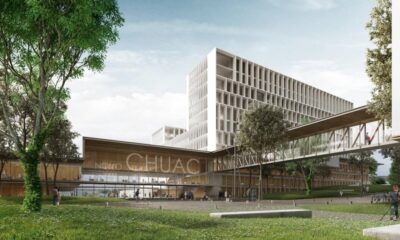
 Politics5 days ago
Politics5 days agoGalician healthcare system receives nearly €510 million in EU support for its modernisation
-
Travel7 days ago
Wildfire warnings issued in the Canary Islands as millions prepare to holiday there
-

 Politics5 days ago
Politics5 days agoNew plan will help EU countries tackle cyber-attacks better
-
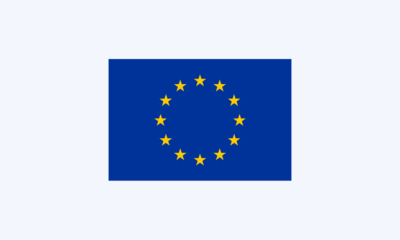
 Politics4 days ago
Politics4 days agoEl Salvador: Statement by the Spokesperson on the Foreign Agents Law and recent developments
-

 Sports7 days ago
Sports7 days agoMarc Marquez no longer wants to make mistakes and heralds change
-

 EU & the World5 days ago
EU & the World5 days agoNovak Djokovic’s Wife: All About His Romance With Jelena Djokovic


